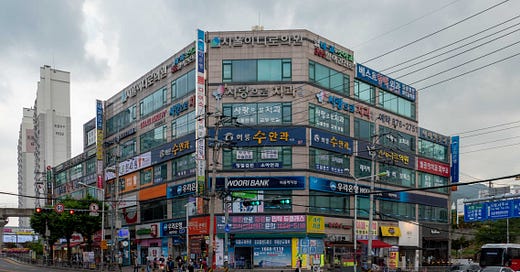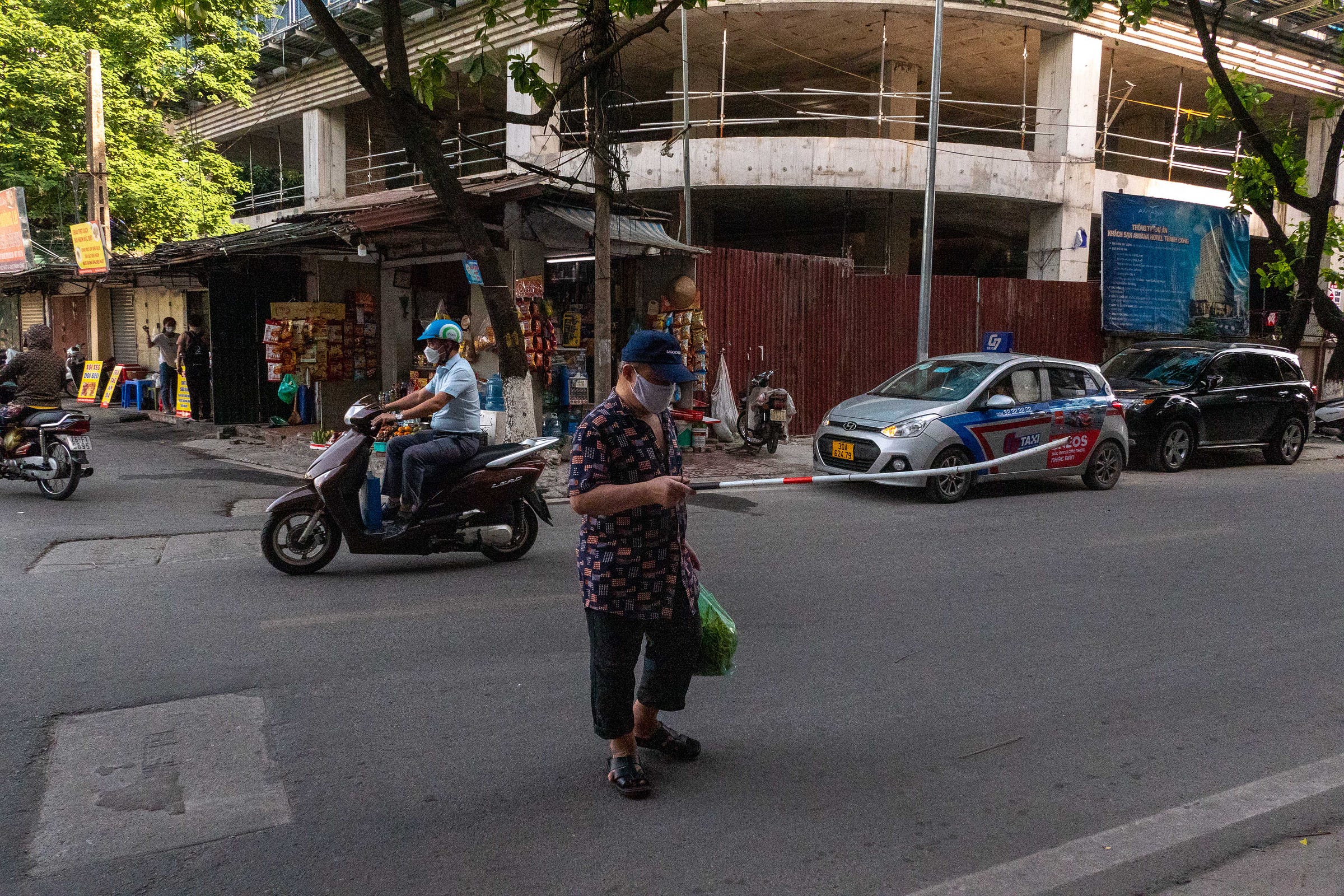I’m home until July third, when I will leave for São Paulo (Brazil), Asunción (Paraguay), and Salta (Argentina). If you are in any of those cities while I am, please reach out to me. I know São Paulo very well, but have not been there in over twenty years, so I am looking forward to seeing what, if anything, has changed.
I was very flattered to be chosen as the keynote speaker at the Strong Towns 2025 conference in Providence. I’ve been an admirer of their vision, which is to make our cities more livable, and who they are, which is a mix of academics, engineers, city management professionals, and then most importantly, engaged ‘normies’ who take seriously the last part of the “Think globally, act locally” bumper sticker.
Their founder Charles Marohn has been very supportive of my work, and I’ve been remiss not to mention his books, or the Strong Town podcast and articles before. I will use the excuse of my being logistically challenged, but the real answer is I’m not a details guy, and working through details to actually get things done are what Charles and Strong Towns is all about.
That’s a failing on my part. It’s easy to do what I do, which is walk around the world and make observations about how it should be, before moving on to the next place. It’s much harder, and more admirable, to do what the Strong Towns members do, which is dig in their heels and try to change things to make their neighborhoods better, one speed bump, one bike path, and countless city zoning/planning sessions at a time.
So while I learned a lot from the two days, listening to others and going to talks, I did feel a tad awkward speaking — the same way I hope a critic feels when speaking to writers, or directors.
Regardless, I thought I would share an edited version of my talk, which is my larval attempt to try and build a “grand unified theory” of urban planning. I say that only partly tongue in cheek, since trying to better understand what “is the perfect city” is actually one of the goals of my walks1, because while urban planning can sound pedantic, trivial, and boring, how we choose to live is as fundamental a question as exists.
A person independent of all community seems to be one of the end goals of modern liberalism (in the philosophical sense), but that is a contradiction of human nature. The famous quote, "No man is an island entire of itself; every man is a piece of the continent, a part of the main..." could be rewritten far less poetically as "Everybody lives in a city, with a zoning policy, tax commission, and an unwritten social contract."
The ancient Greeks also understood this, and so when Plato wanted to explore what justice was, he found he had to ask what is the perfect city, because you can only understand that question within the context of how we live.
Aristotle was even more direct, and his "humans are political animals" quote isn't saying we are naturally drawn to fighting like Democrats and Republicans, but that we are naturally communal, which is where our essential human qualities flourish. He states this more bluntly in the less well-known quote: "Anyone who cannot form a community with others, or who does not need to because he is self-sufficient, is no part of a city-state; he is either a beast or a god."
So, here, in brief power-point-esque bullet points style, are the sketches of what I hope will evolve into the quarks of a grand unified theory of urban planning, with full awareness that is an impossible goal, especially for me. There is a lot more to learn, especially from people like the Strong Towns members who know all the messy details, which is, after all, where the devil hides.
Yes, everyone everywhere wants community
Maybe I’m the hammer with one nail, but everything I’ve done in the last fifteen years, from spending over a decade talking to Americans, to now walking the world, has demonstrated what I see as a truth so fundamental as to effectively be tautological. There is no such thing as a human without a community, and all cities are a reflection of that.
My work in the US got me labeled the “McDonald’s guy”, because I highlighted their importance, especially in otherwise destitute neighborhoods, where they serve as community centers.
The lesson I took from that wasn’t that McDonald’s was particularly special, but rather since it had committed to being everywhere, it was often the only functional semi-public space available for many, and so it became social, because that's what people want. That people would intentionally linger in a business designed for quick turnover showed how deep that need is, because that’s the natural state of mankind. The fact that humans will congregate, regardless of barriers, is the urban planning equivalent of "water will flow to the lowest point," a concept so basic it shouldn’t need to be stated, but it does. In McDonald’s case, it manifests as, if you give people a landscape of banal franchises, they will form community in a banal franchise.
Everything I’ve seen over my last four years walking the world has supported that, from one of my first walks in Vietnam to more recently Lombardy, and has provided me with evidence for a stronger version — which is that human despair is no longer primarily a result of economic destitution; rather it is due to a lack of functional and healthy communities.
A corollary of this is that happiness, fulfillment, and human flourishing are inseparable from the social, and the current challenge for most of the world’s2 political class is understanding that.
Or, building healthy cities is currently more important than building a stronger economy, and so getting our urban planning right is now more than ever a societal health issue. I believe Europe recognizes this more than the US does, which is the TLDR lesson from my last piece comparing the two.
While I don't want to open Pandora's box regarding the Covid era, it did provide us with a real-time example of what happens when people are denied community. My theory, which I've been suggesting since the lockdowns began, is that the spike in crime, protests, and other anti-social behavior in the months and years immediately following was a manifestation of that despair; a national and sometimes global display of pent-up, simmering anger that comes with isolation.
People need community like fish need water, and they need to feel they belong to something greater than themselves. If they don't have access to healthy communities, they will find unhealthy ones. That was one of the lessons from my work on addiction: when traditional forms of community erode (family, faith, place, and yes, bowling leagues), people will gravitate toward drug traps, bars, and gangs, like water running to the lowest point.
City planning is elitist, and that’s ok!
Most people don't think very often about questions such as "What makes a city livable?," or should we go with Euclidean or form-based zoning. They do, however, know what works in a city and what doesn't, and while they might not always be able to articulate that in the language of urban planning, they reveal their preferences in how they behave.
The classic example being the well-worn dirt path cutting between useless sidewalks, or the now mostly unused vast concrete plazas built by planners from the 1950s to the 1970s. Albany's Empire State Plaza, being the closest example to me.
Yet if you ask people directly what we should build, the result will often be like the episode of the Simpsons, when Homer, the everyman, is given license to build his dream car, which ends up being an everything-including-the-kitchen-sink disaster.
City planning is a real-life game of SimCity, a top-down process that most people don't want to, and can't be bothered with, and so it's handed off to a specialized credentialed class, which is how it should be.
I am sure some of you who have read my book or follow me on Twitter will ask, "Hey, I thought you were anti-elitist," and that's not true at all. I respect expertise; what I don't respect, though, is out-of-touch, removed, and bubbled expertise. Especially when the subject matter has to do with people, which is what urban planning really is: practical sociology.
The "I know better" attitude of experts becomes dangerous when it comes with a physical and philosophical distance from the consequences of their decisions. The idea that you need to live what you preach should be a common-sense truth for all expertise, especially urban planning, where, at least metaphorically, you should probably live in the town you design.
My frustration with US politics, which I wrote often about from 2015 to 2019, is how what I’ve labeled the "front-row" is far too removed from the “back-row,” not only physically, but in how they understand the world.
I've never had an issue with the front-row. I respect education, and given that I have a PhD and read things such as Plato and thick 19th-century novels in my spare time, it would be absurd of me to suggest otherwise. I do believe, though, that we need to remember we are in the minority, and given that we generally write the rules for everyone, including how cities are built, we have a moral obligation to not become too detached.
That's not necessarily easy, because nobody likes to get out of their comfort zone, but recognizing that is what led me to start walking and riding the buses, because they force you out of your comfort zone and you see an entire town at the most granular level. You can't fast forward through the messy parts you might not want to deal with, and you find yourself having discussions with people of all types, many whom you wouldn’t necessarily have sought out to talk to3.
Which is my one bit of advice I'm fully comfortable giving to any urban planner, most of whom already know this, but still it's important enough to be repeated over and over: "If you want to understand a place, you need to walk it."
All policy is downstream from culture
Long-time readers of this newsletter already know my views on this, which is that culture trumps policy. If you are playing SimCity, how your Sims behave will determine which policies can work, which cannot, what can be built, and what can’t. The citizens’ default behavior (in the aggregate), is a reflection of their culture at the thin and thick level4, and acts like a guidebook everyone carries in their back pocket, gifted to them at birth.
Cultural constraints limit which policies can succeed, meaning successful urban solutions in one city may fail elsewhere, making it difficult to extract universal planning principles. Is what you admire the policy or the culture? From what I’ve found, it is almost always the culture.
As an example, I’ve come to the conclusion that one of the secret sauces that makes a city walkable and/or livable is density, and localized distribution. That’s why I chose the cover photo, from Seoul. While the building is ugly, it represents a density that supports plenty of small businesses.
Japan, where I just returned from, has both, partly because they have mixed use zoning. So, it seems straightforward that we should implement mixed-use zoning in the US, and that will start the process of making our cities more walkable.
While I believe we should advocate for more mixed-use zoning, I've listened to enough Americans to know that will be a close to impossible sell. Americans are fearful of shared spaces because they don't trust each other, and compared to Japan they are correct not to. Americans don't self-regulate to the degree Japanese do, and to quote a line from Bob Dylan, far too often in American life, you find out that "the pump don't work 'cause the vandals took the handles."
So when we do build shared things, they have to be made asshole-proof, and end up being designed to protect against the worst. I'm looking at you, La Sombrita.
The result is a self-fulfilling process, where we provide fewer, and more banal, shared spaces, so they end up being dreary and Americans start viewing them as things to avoid, and we end up a nation where everyone thinks of themselves as master of their own small fiefdom, which means building high walls, with homes on one side, and businesses on the other.
To quote myself from two weeks ago,
….mixed zoning plays out very differently in a low-trust society than it does in a high-trust one like Japan, because it doesn't mean a more alive city, where children can walk safely, but one with more problems, dangers, and crime. There is a fine line, which is all about public trust, between vibrant alive streets, and squalid, fetid, and lurid ones, and Japan is on the right side, and we (the US) are on the wrong side of that line.
PS: Culture isn't the only explanation, there are also powerful corporate interests that benefit from the status quo, including major chains like McDonald's, Walmart, and Amazon. They benefit from how things are now, and an Asian-style small business flourishing couldn't compete against them. While I am sympathetic to this line of thinking (see BIG), Japan (and Korea, and lots of Europe) shows that culture can, if it has a deep cultural preference, at least for a decent amount of time, hold off the complete leveling from globalization.
Put differently, the US willingness, relative to other countries, to let corporations shape cities does reveal what we value. The US versus Europe thing of economic growth over communal health.
Urban planning does change culture.
I don't want to sound like a culture fatalist, because urban planners are not only playing SimCity—they are also playing SimCulture. That is, while I believe culture precedes policy, there is a feedback loop, and policy does change culture.
As I’ve written before, the Chinese explicitly know this. While I don't advocate for their style of top-down authoritarianism that micromanages every aspect of citizens' lives, I do believe it's better to acknowledge the broad cultural role elites play rather than pretending we have little influence.
How does a culture change? Mostly through persuasion. Japan, which is now famously seen as the shining star of cleanliness, hasn't always been that way. Only sixty years ago, post-war Japan didn't have this reputation, and it was seen as lagging behind Western countries.
Embarrassed by this, the leaders decided to modernize, much as China has done over the last thirty years. That meant an anti-littering campaign, because they equated filth with the past and cleanliness with the future, so before the 1964 Tokyo Olympics the government and intellectual leaders decided to change society. That process continued for decades, through public education, school programs, and strict enforcement of anti-littering laws with heavy fines. It worked so well that, as any visitor to Japan now knows, if you forget to throw away your soda can in the 7-Eleven, you're liable to have to carry it for a few miles, because there are neither garbage piles nor bins to add it to, and nobody, I mean nobody, litters in Japan now.
Astute readers of my generation should add, "We also had a similar campaign in the US in the 1970s. The crying Indian ad being an example of it, and we are still a dirty culture."
While we are still dirty relative to Japan, as anyone who lived through the 1970s knows, that campaign worked5. We are a much cleaner country now. In my childhood, people had no issue tossing bags of garbage out of cars (like in the ad), and the subway cars of NYC were rolling galleries of vandalism.
We certainly didn't reach Japan's lofty level, which stems from a fundamental cultural difference in how Americans and Japanese view their responsibilities to society. The US emphasizes individuality, while the Japanese care more about "being a good citizen."
Why can you change some cultural traits, and not others?
While I have some very speculative ideas, I'll save those for another post. This one has already run on too long and become too fanciful.
So, until next week!
I’m not arrogant enough to think I will ever have an answer to it!
As I’ve written before, above a certain economic threshold (my guess, is around 13,000 GDP/person) fixing the communal order overtakes growing the economy.
I'm a big sports fan, mostly the NFL, and I've found it to be a way to talk to people (mostly men) of all classes, and discuss things, through it, that they might not otherwise feel comfortable talking about, like race, class, privilege, justice, etc. Being sixty years old, I caught the tail end of the "shared national stories" era. With only four TV channels, we all saw the same things, and so there were events that everyone participated in that could be used as an effective nationwide book group. A shared experiences that two strangers had in common that they could discuss, and use as a metaphor to talk about deeper issues.
This is way oversimplifying culture, but for this article, it fits.
Going back to footnote three above, I wonder how the decay of shared national events will impact the ability of policy makers to change culture. The fragmentation of culture, into self organizing smaller fiefdoms, means we are probably shifting towards a period of bottom up cultural change, where forging a national consenus becomes close to impossible, so we get further framentation.











I feel like this kind of ignores two key splits in this discussion, which is that most people in the US really don’t want to live in a dense city, and that many of the desired attributes of community are, in the US, found more easily in smaller, less dense places.
I live in a rural exurb. We have a solid small business infrastructure, a thriving feeling of community, pretty high trust, pretty low crime, and not a lot of density.
It’s easier to start a small business here than in a city - a lot easier - and my hairdresser, carpenter, HVAC guy, veterinarian, electrician, plumber, and yard guy are all small local businesses. We have brewers and vineyards and local restaurants and food trucks and a specialty small grocery, and multiple farmers markets and farmstands nearby, all local businesses.
People see each other at the multiple farmers markets, the many local festivals and fairs, at the local stables and on riding trails, the feed store and nursery, at Little League and track meets, at church, at the library and all its many attendant events, fishing or tubing on the river, doing nature hikes at the state parks - there are more community things to do than time to do them.
I just really feel like, smaller and less dense often gets, without effort, what planners are struggling to reproduce at scale. So maybe density is not really the solution.
It's undeniable that social cohesiveness of east Asian society positively contributes to their city planning. Their culture, at micro level, makes for better city living. Yet given their atrocious birth rates in those societies, they seem to have no interest in perpetuating these cultural traits.
I'm curious if in your travels you have developed any sort of working theory as to why that is? How can a society that appreciates behavior towards the communal good have so little interest that this behavior continues for another generation?